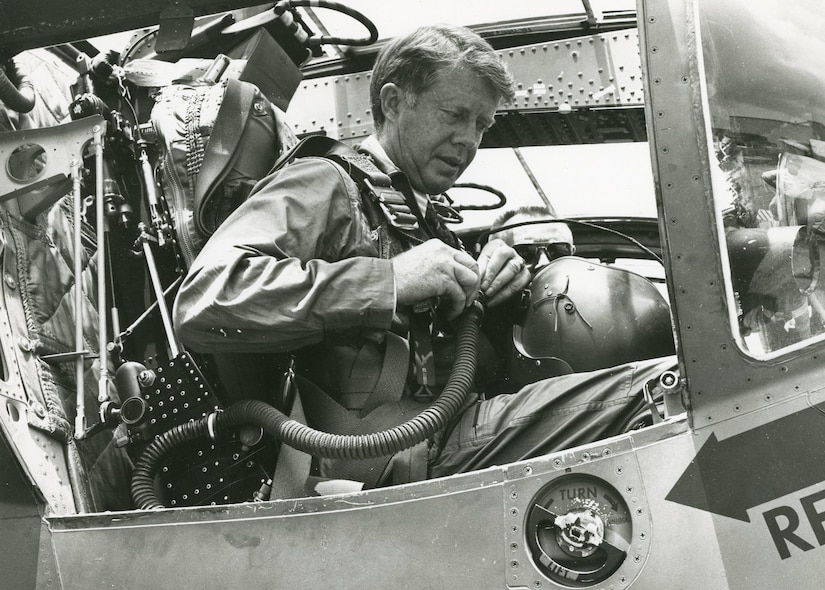Former President Jimmy Carter died yesterday at his home in Plains, Georgia at age 100.
Secretary of Defense Lloyd J. Austin III, in a statement yesterday, called Carter a “principled leader” and “a steadfast champion of human rights and democratic ideals.”
Americans will remember Carter for his leadership in office and his distinguished post-presidency, but the Defense Department also honors his sterling service in uniform, Austin said.
Before Carter was governor of Georgia from 1971 to 1975 and then president from 1977 to 1981, he served in the Navy on active duty from 1946 to 1953 and in the reserves from 1953 to 1961, attaining the rank of lieutenant.
After graduating from the U.S. Naval Academy in 1946, Carter completed two years of surface-ship duty before working on submarines. He was selected to develop nuclear-powered submarines and served on the first U.S. submarine built since World War II, Austin noted.
In 2005, the USS Jimmy Carter — a nuclear-powered submarine — was commissioned in his honor, and in 2023, Building 105 at the U.S. Naval Academy was renamed Carter Hall, the secretary said.
Carter also contributed to global security, Austin said, noting his role in working to strengthen NATO and other alliances. He also issued the Carter Doctrine, which specified that the U.S. would use military force, if necessary, to ensure stability and security in the Persian Gulf.
The president also established diplomatic relations with China and brokered peace between Israel and Egypt, the secretary said.
After his White House tenure ended, Carter and his wife, Rosalynn, founded the Carter Center and worked tirelessly to build homes for the poor, fight disease and expand economic opportunity, Austin noted.
“President Carter’s lifelong leadership and deep faith will continue to inspire Americans and people around the world,” Austin said.
President Joe Biden and first lady Jill Biden in a statement yesterday said, America and the world lost an extraordinary leader, statesman and humanitarian.
“With his compassion and moral clarity, he worked to eradicate disease, forge peace, advance civil rights and human rights, promote free and fair elections, house the homeless and always advocate for the least among us. He saved, lifted and changed the lives of people all across the globe. He was a man of great character and courage, hope and optimism,” per the statement.
In a proclamation issued yesterday, Biden said, “Carter was a man of character, courage and compassion, whose lifetime of service defined him as one of the most influential statesmen in our history. He embodied the very best of America: A humble servant of God and the people, a heroic champion of global peace and human rights, and an honorable leader whose moral clarity and hopeful vision lifted our nation and changed our world.”
After his father died, Carter returned home to Plains, to help manage his family’s peanut farm. He worked hard stewarding the land while leading his community as a church deacon, Sunday school teacher and board member of a hospital and library. His deep faith inspired a passion for public service, per the proclamation.
Biden proclaimed Jan. 9 as a national day of mourning and ordered flags of the United States lowered to half-staff for 30 days from the day of Carter’s death.









